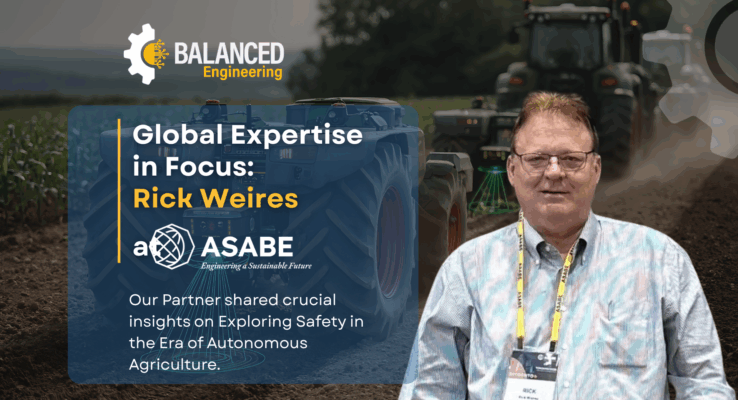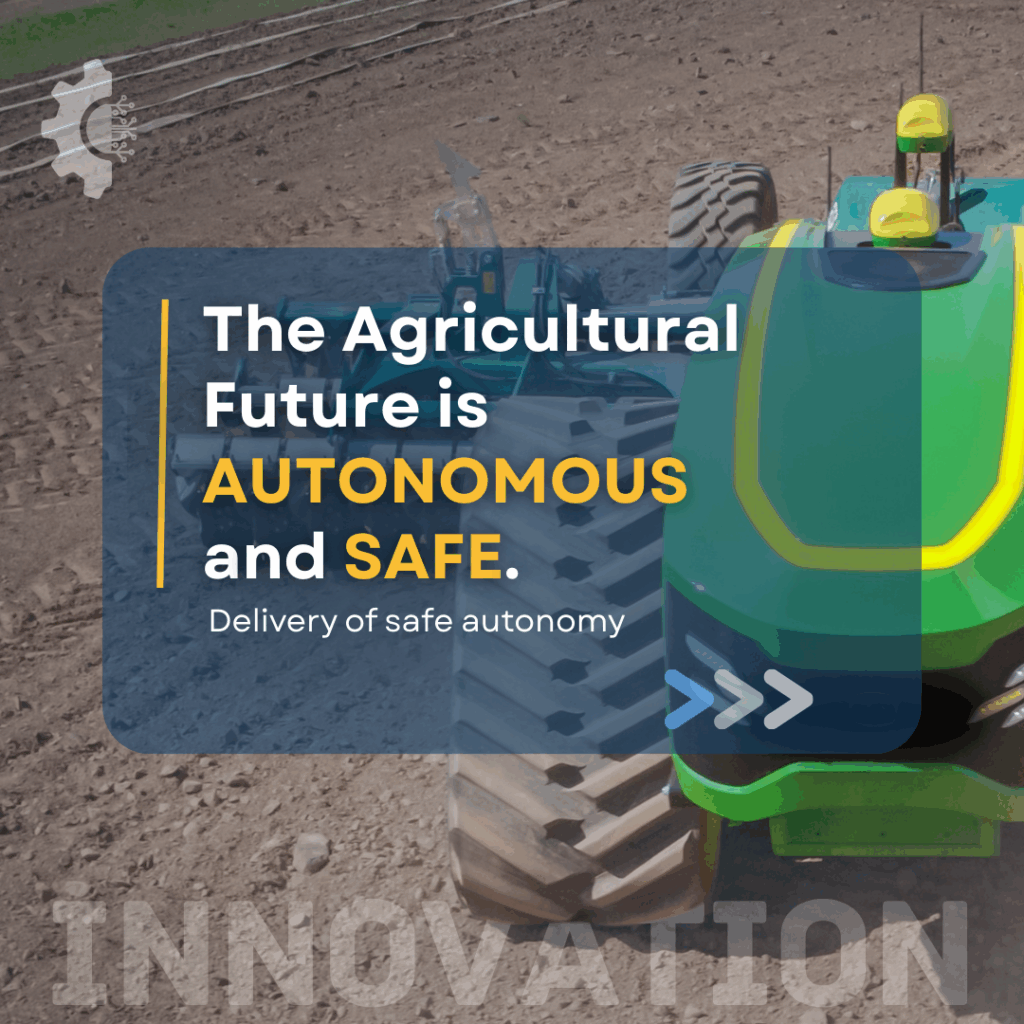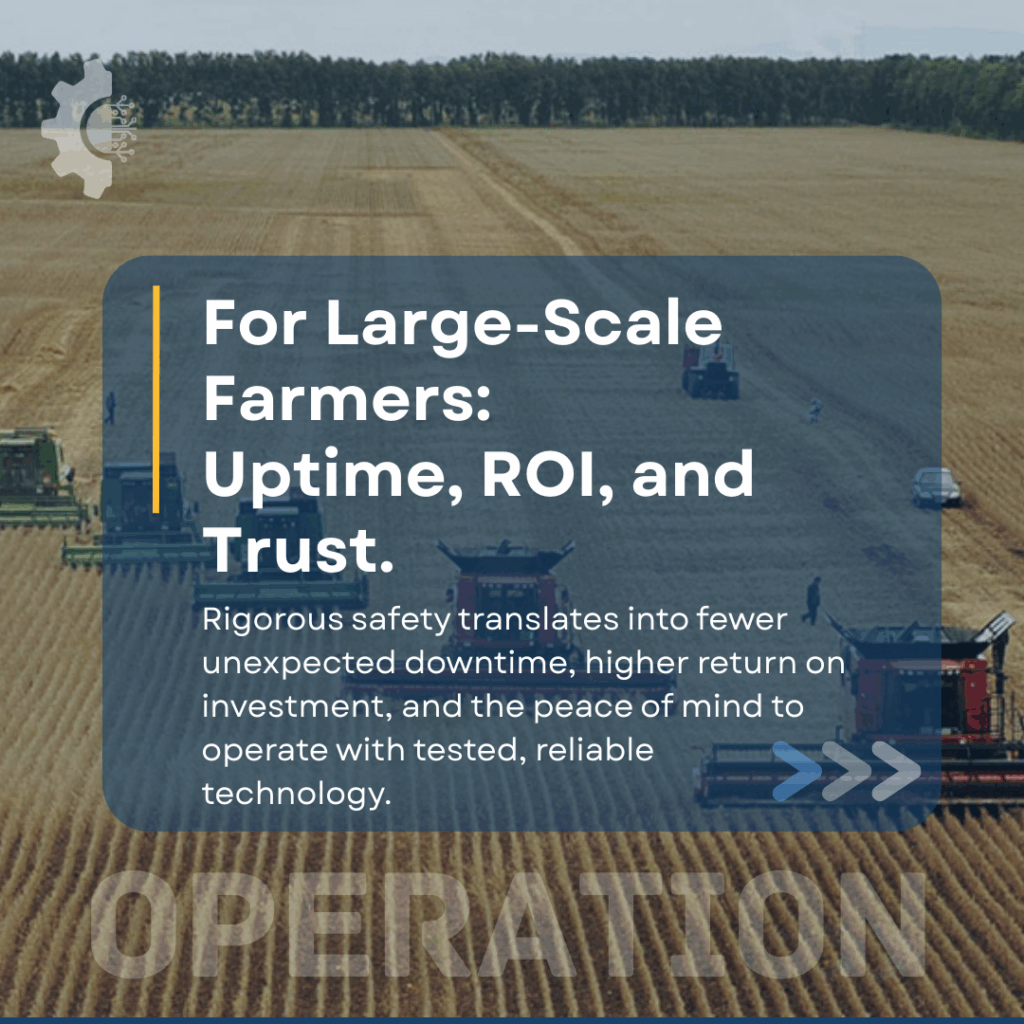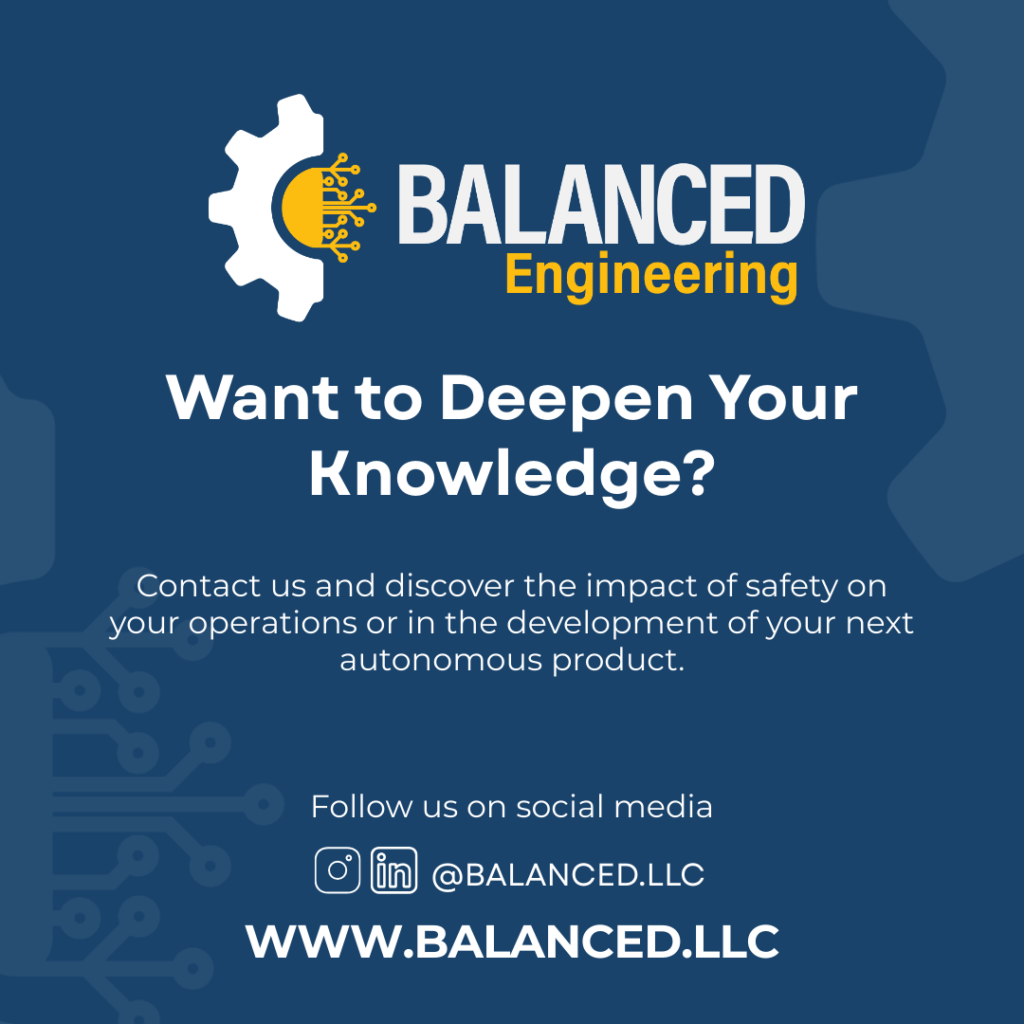
The future of agriculture is autonomous, and at Balanced Engineering, we ensure it is also secure. The transition to autonomous agricultural machinery promises to revolutionize productivity and efficiency but brings with it the critical need for global security and validation. This is why expertise in international standards, such as those discussed at the American Society of Agricultural and Biological Engineers (ASABE), is more vital than ever.
Recently, our partner, Rick Weires, a figure with 20 years of experience in automation and safety at John Deere, attended ASABE, sharing crucial insights on “Exploring Safety in the Era of Agricultural Autonomy.” His participation reinforces our commitment to leading the discussion and implementation of safe practices in the sector.
For OEMs: Robust Product and Global Compliance
For Original Equipment Manufacturers (OEMs), product safety and compliance with global standards are non-negotiable. The increasing complexity of automation and electrification demands specialized expertise that is not always available internally. This is where Balanced Engineering stands out.
As Rick Weires emphasized at ASABE, early Validation and Verification (V&V) is essential to mitigate risks, ensure compliance, and accelerate the development of robust products. Standards such as ISO 18497 (agricultural autonomy) and ISO 25119 (functional safety for agricultural machinery) are pillars to ensure that your products meet stringent safety standards and international regulations.
Our expertise in proactively integrating safety from the early stages of design allows OEMs to bring their ideas to market more quickly, with the assurance that their products are safe, certified, and competitive.





For Large Agricultural Producers: Uptime, ROI, and Confidence
For large agricultural and forestry producers, adopting autonomous technology represents a significant investment. Ensuring that this technology is tested, reliable, and safe is fundamental to protecting your investment and optimizing your operations.
Rigorous safety translates directly into tangible benefits for you:
- Less unexpected downtime (Uptime): Safe machines are more reliable and available.
- Higher Return on Investment (ROI): The efficiency and precision of safe automation maximize productivity per hectare/hour.
- Peace of Mind and Confidence: Operating with proven safe technology provides the necessary tranquility to focus on growing your business.
At Balanced Engineering, we understand that operational safety is paramount. Our solutions ensure that the technology you adopt in your field is not only innovative but also robust and reliable, allowing you to reap the benefits of autonomy with complete security.
The Importance of Early Validation and Informed Decision-Making
The discussion at ASABE also addressed the importance of “going to the field early” with new technologies. This allows for valuable feedback collection, performance improvement through early validation and verification (V&V), and potentially enhancing safety through real-world testing.
The decision of when and how to bring technology to the field involves multiple stakeholders—from product safety engineers and safety committees to senior leadership and legal teams. Balanced Engineering acts as a guide, helping navigate these complexities and make informed decisions that balance innovation and responsibility.
Our Commitment: Global Standards for a Secure Future
Balanced Engineering is at the forefront of proactively integrating safety into autonomous and agricultural technologies. Our commitment is to support our clients in complying with the highest international standards, ensuring that the agriculture of the future is not only autonomous but fundamentally safe.
Want to deepen your knowledge about the impact of safety on your operations or the development of your next autonomous product?
